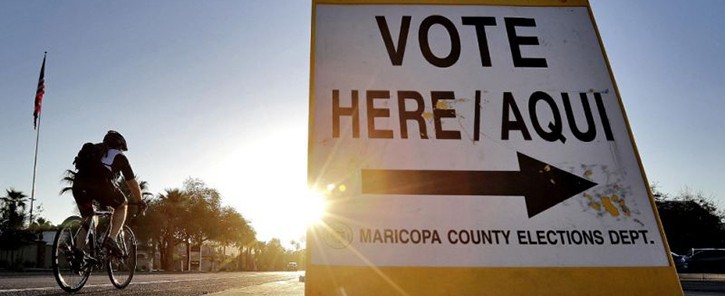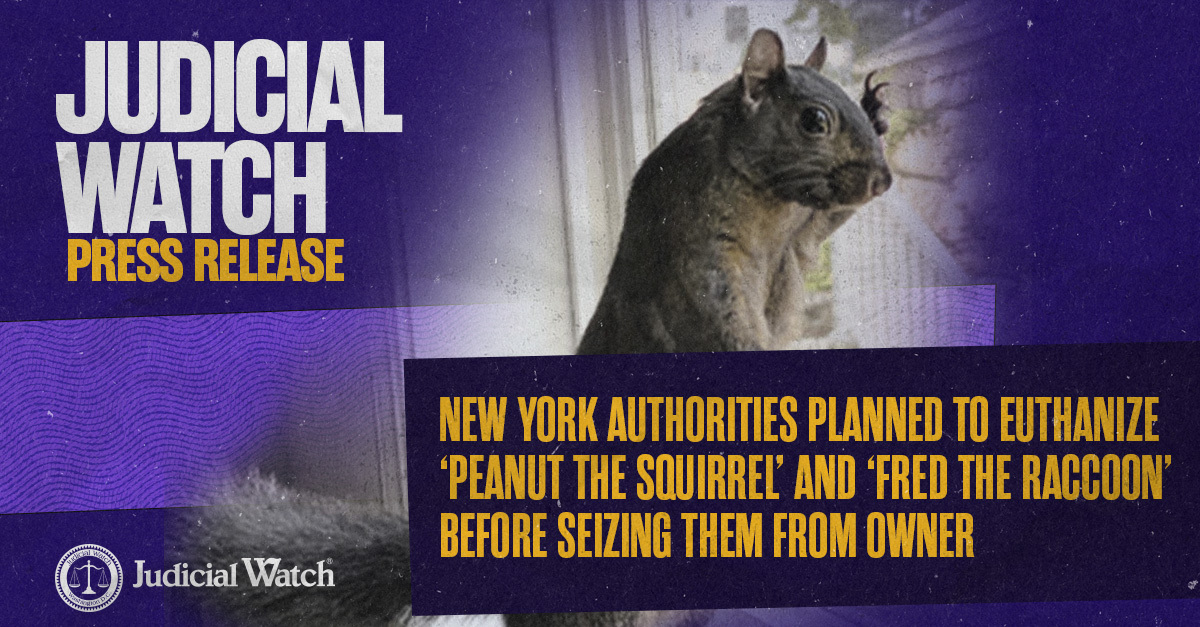
Judicial Watch and Allied Educational Foundation File Amici Curiae Brief in Supreme Court Supporting North Carolina Voter ID

North Carolina Election Integrity Law Boosted Minority Turnout
(Washington, DC) – Judicial Watch announced it has joined with the Allied Educational Foundation (AEF) in filing an amici curiae brief with the United States Supreme Court in support of the State of North Carolina’s cert petition concerning its voter ID and other election integrity laws (State of North Carolina, et al. v. North Carolina State Conference of the NAACP, et al. (No. 16-833)).
The case concerns North Carolina’s adoption in 2013 of common-sense election integrity measures requiring voter ID, eliminating “same-day” voter registration, reducing the early voting period, and prohibiting voters from casting provisional ballots outside of their voting precincts. The Obama Justice Department and other groups represented by the NAACP and the League of Women Voters filed suit, alleging this law was racially discriminatory against black voters in violation of the Fourteenth Amendment and Section 2 of the federal Voting Rights Act (“VRA”).
The Judicial Watch/AEF brief was filed in support of the petition for certiorari filed by North Carolina asking the Supreme Court to accept the case for consideration in order to overturn the decision of the United States Court of Appeals for the Fourth Circuit, which struck down a 2013 North Carolina election-integrity law. The most recent appeals court ruling reversed the lower court ruling that found the election integrity measures lawful.
Judicial Watch and AEF filed amici curiae briefs at five earlier stages of this litigation, most recently supporting the North Carolina election integrity laws in the Fourth Circuit Court of Appeals, and supporting North Carolina’s request to the Supreme Court for an emergency stay of the appeals court ruling. Judicial Watch and AEF also filed amici briefs in this lawsuit in 2014 at the district court, in 2014 at the Fourth Circuit, and again at the Supreme Court in 2015.
Judicial Watch and AEF argue that the Fourth Circuit failed to prove a discriminatory effect that would show “that African American registration and turnout, which ought to be the true measures of electoral participation and power” was diminished by any of the challenged voting procedures.
Amici are principally concerned that the Fourth Circuit’s decision will subject state laws regarding electoral procedures to unremitting attacks on the grounds that one or another statistical analyses shows a disproportionate racial use of such procedures, even where this has no effect on the true electoral power of racial groups – indeed, perversely, even where this effect is positive. The consequences of this new electoral dynamic, to the extent that they can be foreseen, are all bad. As a practical matter, every change to state electoral law will be subject to a serious and viable challenge. State electoral law will become largely a federal matter, to be determined and approved in federal court. Even more disturbing, because this massive distortion of our political system relies on the wrong evidence of electoral harm, it ultimately may injure the minority voters it was meant to help.
Judicial Watch and AEF argue that the Fourth Circuit mistakenly treated statistical disparities (disparate impact) regarding the use of electoral procedures as proof of a discriminatory effect. In fact, a Judicial Watch study found that minority voter turnout has actually increased since the passage of North Carolina’s election integrity bill:
To answer the question of whether there is a discriminatory effect, it is necessary to look at African Americans’ voter participation rates in elections both before and after the challenged provisions of SL 2013-381 went into effect. Statistical evidence of this kind was offered into evidence by [Judicial Watch/AEF] to rebut claims by [NAACP] that enforcement of some of the provisions2 of SL 2013-381 has a discriminatory effect. That evidence showed, as noted by the Fourth Circuit, that black voter “aggregate turnout increased by 1.8% in the 2014 midterm election as compared to the 2010 midterm election.”
The amici brief cites additional empirical studies that demonstrate the perverse consequences of the appeals court’s reasoning:
The evidence offered at trial showed that minority turnout and registration actually increased in North Carolina after the implementation of SL 2013-381.6. Indeed, with respect to early voting in particular there is a growing body of evidence suggesting that it is associated with lower turnout. In June 2016, the General Accounting Office (GAO) issued a report online in which it gathered and presented the conclusions of scores of studies concerning a number of different electoral reforms. With regard to early voting, the report states:
We reviewed 20 studies from 12 publications, and these studies had varied findings. Seven studies found no statistically significant effect, another 8 studies found that the policy decreased turnout, and 5 studies reported mixed evidence. Reported effects from these studies ranged from a 3.8 percentage point decrease in turnout to a 3.1 percentage point increase.
The GAO observed that one study found some evidence that “early in-person voting decreased turnout among Latinos in states that offered this policy compared to states that did not.” Furthermore, an expert called by Respondents in this case, Barry C. Burden, co-authored a 2014 report reaching the same, “unanticipated” conclusion, namely, that early voting was associated with lower turnout:
It seems logical that making voting more convenient . . . will encourage more people to cast ballots. We challenge this notion and show that the most popular reform – early voting – actually decreases turnout when implemented by itself, an unanticipated consequence that has significant implications for policy and for theories of how state governments can influence turnout. This result is counterintuitive, and it certainly runs against the grain of conventional wisdom.
“In order to combat voter ID and election integrity, the Obama Justice Department and their leftist allies slander North Carolina with a dishonest use of the race card,” said Judicial Watch President Tom Fitton. “Laws that help ensure cleaner elections, including voter ID, protect the integrity of votes of all Americans – black and white; Democrat and Republican.”
Since this filing, newly elected North Carolina Democrat Governor Roy Cooper has moved to withdraw North Carolina’s petition to the Supreme Court. In response, the General Assembly for the State of North Carolina has objected to the Governor’s move and has filed a request to be added as a petitioner in order to try to preserve the election integrity measure by keeping the Supreme Court appeal alive.
The Allied Educational Foundation is a charitable and educational foundation dedicated to improving the quality of life through education. In furtherance of that goal, the Foundation has engaged in a number of projects, which include, but are not limited to, educational and health conferences domestically and abroad. AEF has partnered frequently with Judicial Watch to fight government and judicial corruption and to promote a return to ethics and morality in the nation’s public life.
###
















